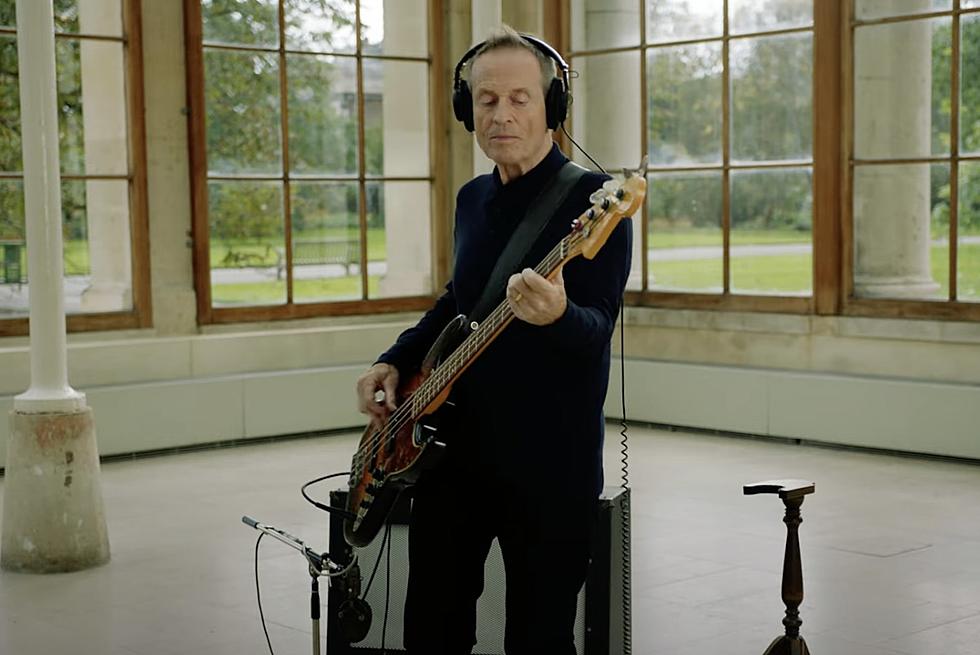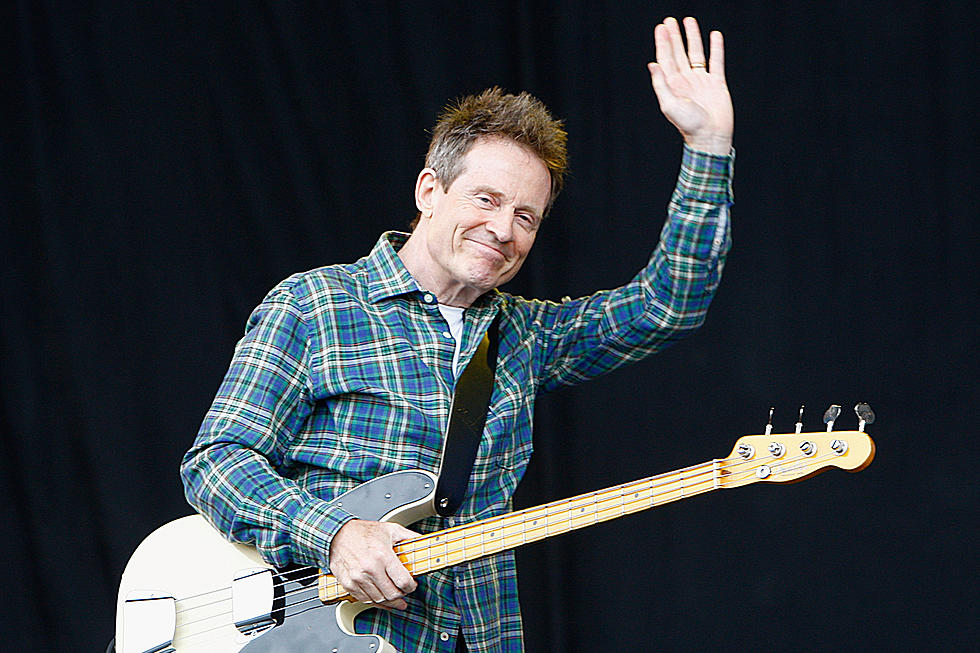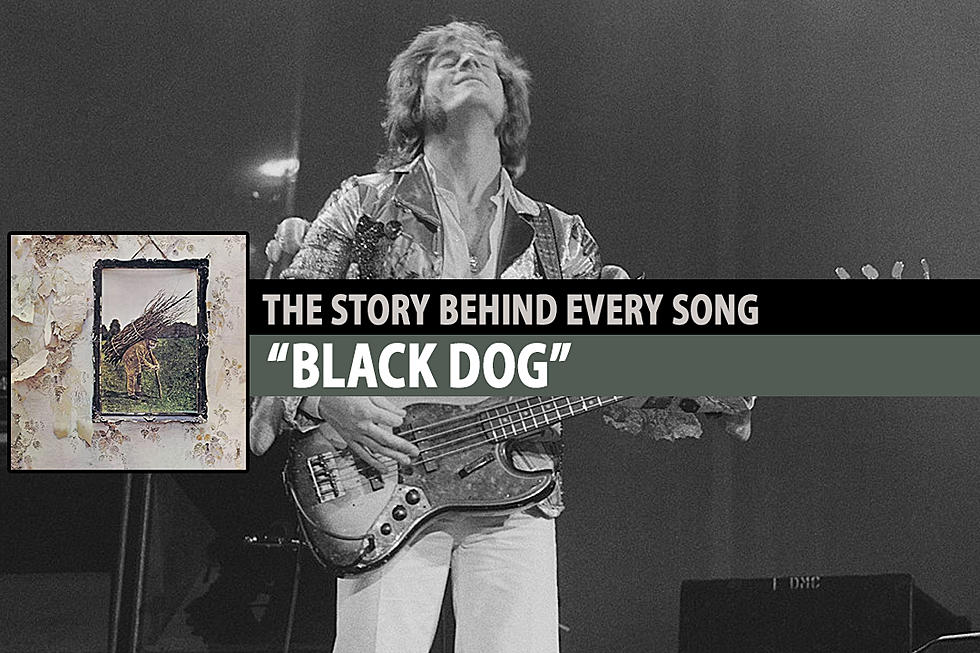25 Years Ago: The Butthole Surfers Team Up With John Paul Jones for ‘Independent Worm Saloon’
While the mainstream music of the '80s was filled with glossy MTV boppers and rockers, the underground was an elaborate mélange of every sound and style imaginable. From neo-psychedelia to hardcore punk to country-tinged roots-rock to pure power pop, it was fair game for everything. From under a filthy rock crawled one of the era’s wildest combos, the Butthole Surfers.
Even among the crazed hardcore and underground chaos of the era, the Butthole Surfers were pretty out-there with their acid-damaged, slightly disjointed and grimey take on rock. Early records such as Rembrandt Pussyhorse and Psychic Powerless and Another Man's Sac fused a punk sensibility with a bad LSD trip and a deranged sense of humor, the end result of which was a style of rock 'n' roll that was truly their own. By the release of Locust Abortion Technician in 1987, they were becoming darlings of college radio and with Hairway to Steven had begun to craft slightly more "traditional" songs, while retaining that drugged-out grime. Their live shows at the time took on a pseudo-Hawkwind vibe complete with a naked dancer, pyro and bizarre film projections.
One would have easily thought that was the end of the line for the band, because where were they to go from there? Despite surging record sales and concert tickets, they were not about to become the next to follow R.E.M. out of the underground ... or were they?
A funny thing happened along the way. That thing was called Nirvana, and with the success of that trio from Aberdeen, Wash., blowing the doors off the music industry, anything and everything was fair game. In the feeding frenzy aftermath of the success of Nirvana's Nevermind and the mainstreaming of "alternative rock," the Butthole Surfers signed a deal with a major label. Not just any major label, but Capitol Records, a label synonymous with the Beatles, Beach Boys and Frank Sinatra.
To add to the strangeness, in picking a producer for the album, they looked no further than another very traditional and legendary source, calling in John Paul Jones. The former Led Zeppelin bass and keyboard man would handle production chores for what would become Independent Worm Saloon.
What exactly did Jones bring to the Surfers? "He was like a horrible drunk when we were doing that record, but we were loaded too," recalled singer Gibby Haynes in a 2001 interview. "We spent so much money on that record! We basically spent a fortune to hang out with some guy from Led Zeppelin!"
Throughout his career, Jones had worked with a wide variety of acts including Donovan, Herman's Hermits, the Rolling Stones, Cat Stevens, Tom Jones and many more. None of the acts he worked with, however, had the bizarro reputation that the Surfers had. In addition, the underground merging with someone from one of the most popular bands in history seemed so far out that it almost made sense for a moment.
"I was brought in to produce the Butthole Surfers’ 1993 album, Independent Worm Saloon. I guess it was to give it a heavy rock vibe, but it didn’t work like that," said Jones in a 2017 interview with Uncut. "They were actually incredibly hard-working in the studio, but I do recall running up a phenomenal bar-bill at the San Rafael studio."
"And then there was Gibby and his eccentric studio behavior," Jones continued. "Gibby did one vocal take shouting into his guitar. He held it out in front of his face and screamed at it. Ha! He was trying to find out if it picked up through the pick-ups, which it kind of did. And that was pretty good."
"Who Was in My Room Last Night?" was released as a single and video, but despite gaining some airtime on Beavis and Butt-head, the catchy hard rocker failed to generate any significant sales action. Though the album did receive notable college radio airplay, the LP failed to even make the Top 100. It did, however, allow the band one more shot with Capitol, paving the way for the gold level success of Electriclarryland in 1996 and the Top 40 hit "Pepper."
Meanwhile, Jones' career would take more twists and turns, finding him collaborating with avant-garde vocalist Diamanda Galas on an album in 1995. Learning from his years of work with such an array of acts, Jones concluded, "There’s a tendency for people – especially musicians from my generation – to say that there has been this terrible decline in musicianship, that today’s bands haven’t got the chops, blah blah blah. But that’s not true at all."
Top 100 '90s Rock Albums
More From Ultimate Classic Rock









